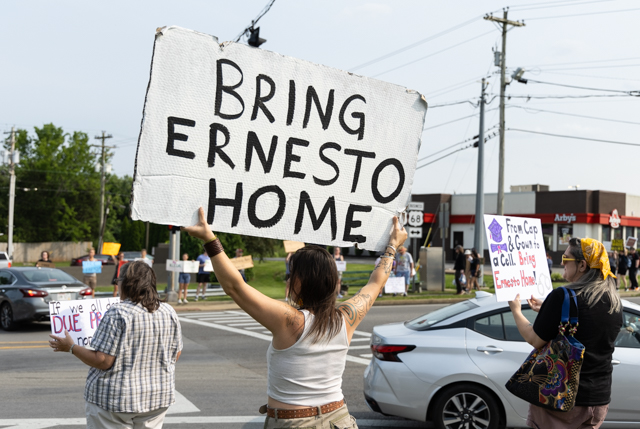Autism program has its fifth birthday
Published 12:00 am Friday, September 5, 2008

- Photo by Miranda Pederson/Daily NewsThe crowd applauds Thursday after Madeline Sutphen’s musical performance of the song “Wonderwall” during the anniversary of the Kelley Autism Center at the Suzanne Vitale Clinical Education Complex.
The Kelly Autism Program celebrated five years of service Thursday that highlighted its accomplishments, outlined its future, and featured noted author and speaker Temple Grandin – “the most renowned adult with autism,” said Marty Boman, director of the program at WKU.
“I thought everyone thought in pictures,” Grandin said to the audience inside Mass Media and Technology Hall at WKU as she began to explain how her mind works.
Grandin said she doesn’t have abstract thoughts. If there isn’t a picture, the thought is not clear, she said. She said her mind works much like a search engine, but instead of looking up specific words, it looks for pictures to associate with a word.
During her presentation, Grandin related autism to how animals think and feel. She said to understand animals, autism and art requires getting away from language. For example, she explained that animals tend to associate colors and objects to experiences, much like people with autism.
Grandin said autistic individuals pay attention to detail, and when she was young her ability in art was encouraged. She said she was good at drawing and turned that into her career with livestock.
“It’s about taking what you’re good at, and build it up to turn it into a career,” she said.
Grandin, an associate professor at Colorado State University, is the author of “Unwritten Rules of Social Relationships: Decoding Social Mysteries Through the Unique Perspectives of Autism,” “Emergence: Labeled Autistic,” “Animals in Translation” and “Thinking in Pictures and Other Reports from My Life With Autism.” She is also known for her work on the design of livestock handling facilities.
But before Grandin took stage Thursday afternoon, she, Boman, community members and WKU officials gathered inside the Susan Vitale Clinical Education Complex at WKU – where KAP is housed. Those who came heard participant Madeline Stuphen’s rendition of “Wonderwall” by Oasis, saw a slide show of photos that showcased program participants and the unveiling of a quilt two participants worked on.
People also heard Boman speak of accomplishments and associate director Richmond Mancil outline future endeavors for KAP.
“We extend beyond the walls of this building,” Boman said.
Some accolades included a national marketing program to expand program services throughout the state and to universities throughout the nation, starting in Owensboro; being the recipient of $43,000 in grant funding and $24,000 for research; and watching its participants develop, such as three of its participants who have started to communicate verbally.
Mancil said while KAP will continue its base programs, it will push the envelope with research and coping strategies for parents of children with autism and their siblings. He said they will also be putting more focus on sensory perception.
The program is named after John and Linda Kelly of Bowling Green, whose daughter has autism. The couple had a vision for a program that would provide instruction, intervention and support opportunities to children and young adults with autism spectrum disorders and their families.
Five years ago the program started in Jones-Jaggers Hall with five students, said WKU President Gary Ransdell. Today, the program works with 95 participants – 22 of them fully engaged students at the university, Ransdell said.
KAP offers a variety of services to children, adults with ASD and their families, and serves as a training opportunity for WKU students in different disciplines. KAP has programs for elementary, middle and high school participants and postsecondary participants, which includes those in college, vocational training and seeking employment.






